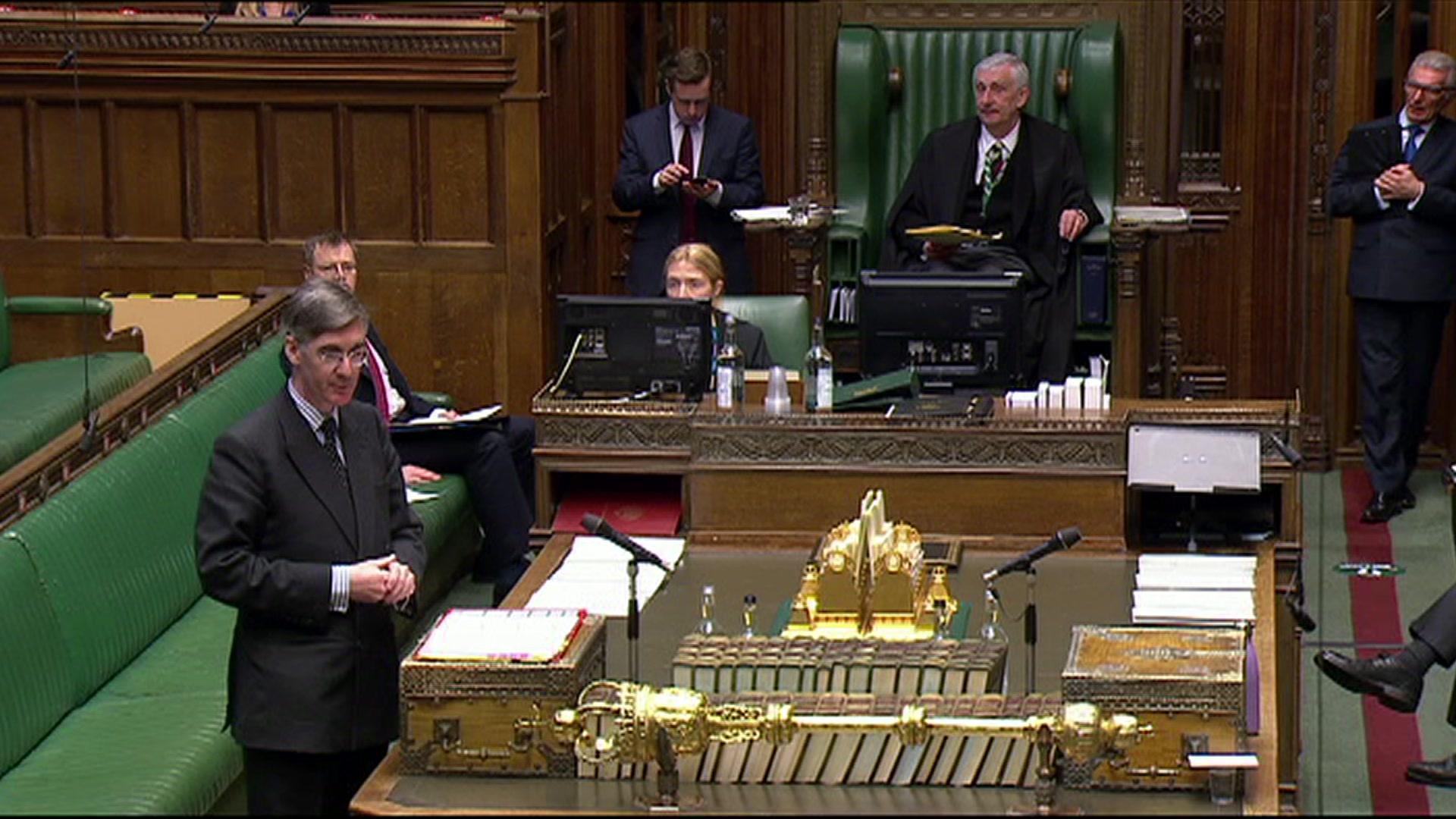The week ahead in Parliament
- Published
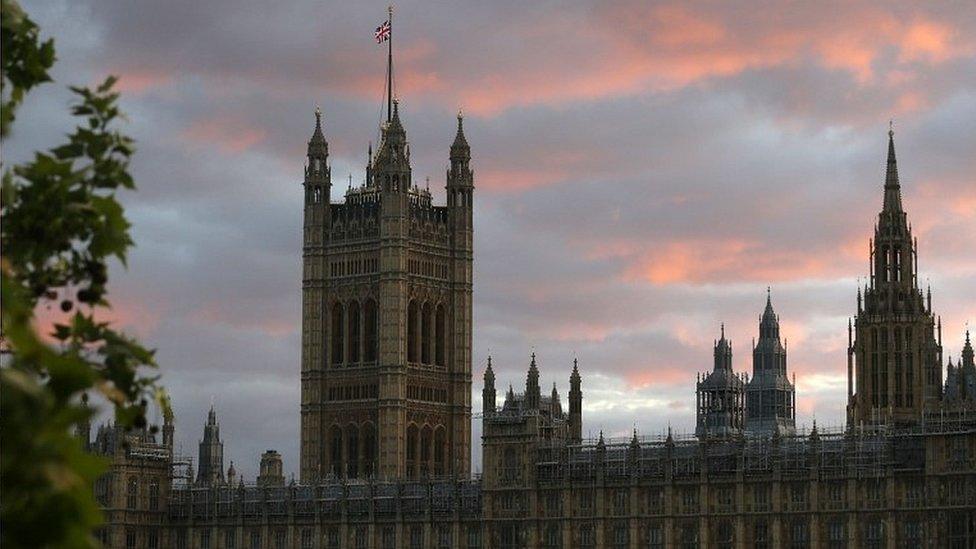
Week four of the virtual Parliament has passed, and since going online, MPs have held innumerable select committee meetings by video link, the Commons has seen the first remote maiden speech, the first remote personal statement, several online divisions (including the first examples of MPs accidentally voting the wrong way) and at least one all-virtual debate - on an innocuous statutory instrument on pension enrolment.
So the lockdown-beating measures to keep Parliament debating and scrutinising and law-making have proved pretty successful - up to a point.
For ministers the problem area is the passage of legislation. Next week two major Brexit bills, the Immigration Bill and the Trade Bill, will have second reading debates, but then what?
In normal times they'd go into committee for several weeks of line-by-line scrutiny, but that kind of scrutiny has not been possible for any bill since Easter, because there is no mechanism in place for votes in virtual bill committees - although creating one should be fairly straightforward.
This bottleneck matters because the UK's transitional period before leaving the EU single market is due to end on 31 December and there's a lot of heavy-duty legislating to get done.
Cheek by jowl
This is one reason for the ministerial enthusiasm for getting back to normal parliamentary operations, or some semblance of them, after the looming Whitsun recess. The other is that many MPs believe the virtual Parliament, while better than nothing, offers only the palest shadow of the proper scrutiny that comes when a crowded chamber can see the whites of a minister's eyes.
But others are worried that it would be premature and unsafe to go back to crowded debating chambers and cheek-by-jowl voting lobbies. So they want to stick with remote voting and online contributions to debates, especially for those MPs who may be vulnerable to the virus.
And while there are some wheezes that might allow more MPs into the chamber, like reviving the right to address the House from the upper galleries (which would require some extra microphones and cameras to be installed) the implication is that the current provisions look likely to continue until September.
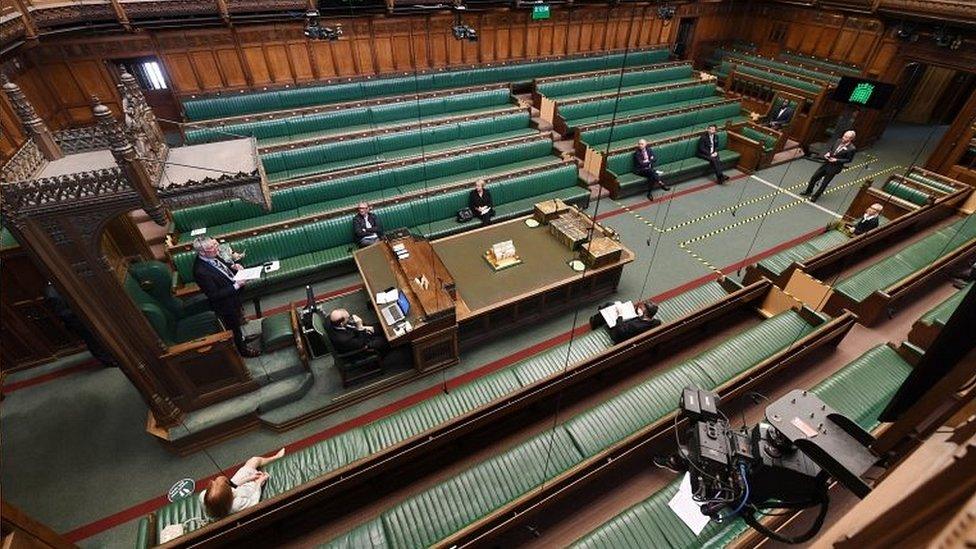
One possible change in June is that MPs may resume sitting for four days a week. With the Lords set to resume sitting for four days a week, it would look odd if the Commons did not, especially while ministers are grumbling about a backlog of legislation.
They might even start holding Friday debates on private members' bills, where social distancing was practised long before it was fashionable, and there were rarely more than a handful of MPs in the chamber - the first Friday sitting is due on 12 June.
Here's my rundown of the week ahead, with the usual health warning that very significant statements or urgent questions can be dropped into the agenda at short notice - and, equally, other items can disappear. The Wednesday Liaison Committee motion looks a likely candidate for strategic disappearance.
Monday 18 May
The Commons opens (14:30) with half an hour of Treasury questions, followed by half an hour of Transport questions, and then, quite possibly a crop of post-weekend statements and urgent questions.
Then, four hours (with a 15-minute suspension in the middle) have been allocated to debate the second reading of the Immigration and Social Security Co-ordination Bill. This is a major Brexit measure, repealing EU free movement of persons and other related EU-derived rights in UK law, and making EU, EEA and Swiss citizens subject to UK immigration controls.
Irish citizens' immigration rights would remain. What the bill does not do is detail the future points-based immigration system, which will come into force after the Brexit transition period. That will be set out by the home secretary in regulations made under the powers in this bill, which will then have to be approved by Parliament.
The smaller opposition parties have put down ritual amendments to refuse a second reading. The Lib Dems say the bill fails to secure the rights of UK citizens to live, work and study in EU member states and the rights of EU citizens to do likewise in the UK.
The SNP says the bill fails to respond to the coronavirus pandemic through a coherent system of visa extensions, the scrapping of no recourse to public funds rules, protection of asylum seekers, relief for families impacted by financial thresholds in the immigration rules, release of immigration detainees and stability for employers recruiting from the EEA. Its amendment also calls for a differentiated migration policy or devolution of powers to Scotland and other devolved nations.
Interestingly, though, there is no official Labour amendment (the deadline was 17:00 on Thursday 14 May). Instead, there's an amendment proposed by Campaign Group stalwarts like Bell Ribeiro-Addy, Diane Abbott, John McDonnell, Richard Burgon and Dawn Butler, plus the Greens' Caroline Lucas, which argues that the bill "usurps parliamentary sovereignty by granting excessive powers to the government to make changes to all immigration law with minimal legislative scrutiny and without primary legislation".
The programme motion calls for the bill to have completed Committee Stage consideration by 25 June, opening the way for what could well be an epic Report Stage.
On the virtual Committee Corridor (14:30) Housing, Communities and Local Government takes evidence on progress in removing dangerous cladding from tower blocks, first from activists and then (15:30) from Lord Greenhalgh, Minister of State at the Ministry of Housing, Communities and Local Government.
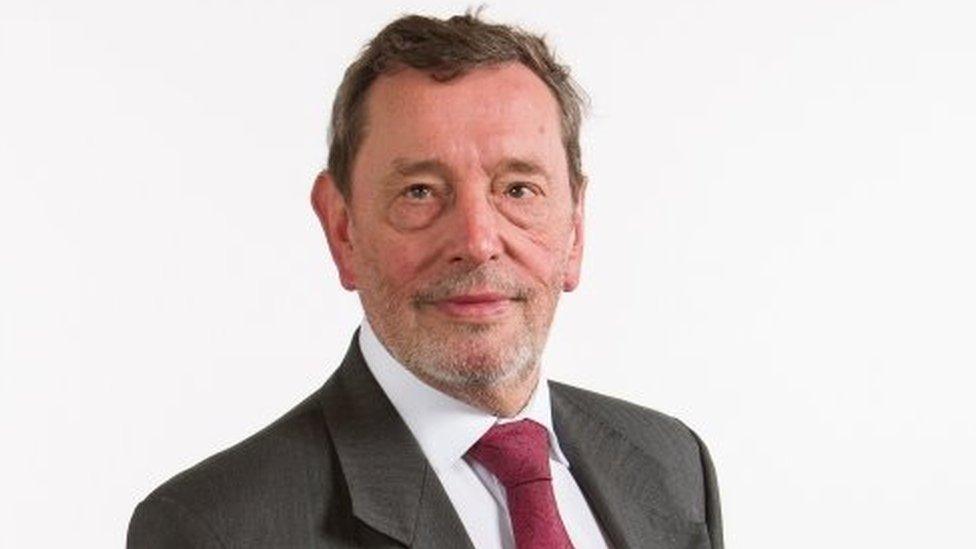
Lord Blunkett will have his say on Covid-19 restrictions
The Human Rights Committee (which has peers and MPs in its membership) takes evidence on human rights implications of the government's response to Covid-19 (14:30) including from Adele Green, a mother whose son has learning disabilities, and Andrea Attree, a mother of an autistic daughter. Both children are currently detained.
Then they hear from Kevin Cleary, Deputy Chief Inspector of Hospitals and lead for mental health and community services at the Care Quality Commission, along with Kate Terroni, the Chief Inspector for Adult Social Care, and from NHS England.
The Education Committee (09:30) looks at the impact of Covid-19 on education and children's services, with witnesses from the National Union of Students, the University Alliance and the Office for Students
In the Lords (14:30) questions to ministers include former Home Secretary Lord Blunkett on adjusting the restrictions in place for those isolating due to the Covid-19 pandemic, and the Greens' Baroness Jones on the privacy concerns around the NHS Covid-19 contact tracing app.
Then peers consider the Draft Human Tissue (Permitted Material: Exceptions) (England) Regulations 2020. This is essentially a list of what parts of a dead person's body may not be removed for transplant purposes under the "deemed consent" legislation for England, that was passed last year. Among other things it rules out deemed consent for brain transplants.
That is followed by a substantial-looking debate on the International response to COVID-19 - with 48 peers already down to speak
Tuesday 19 May
MPs begin (11:30) with half an hour of Environment, Food and Rural Affairs questions, followed by mini-question times for the MPs who speak for the Church Commissioners, the House of Commons Commission, the Parliamentary Works Sponsor Body, the Public Accounts Commission and the Speaker's Committee on the Electoral Commission. After that, expect the customary crop of coronavirus-related ministerial statements.
Then MPs move on to the Human Tissue (Permitted Material: Exceptions) (England) Regulations 2020 - the highly sensitive SI debated in the Lords on Monday.
That is followed by the Victims and Witnesses (Scotland) Act 2014 (Consequential Modification) Order 2020, which will give the courts in Scotland power to make deductions from the benefits paid to an offender to provide support for their victims.
If MPs notice in time, there may also be some interesting action around a Ways and Means Resolution to allow the Finance Bill to include measures to deal with "disguised remuneration", the ultra-controversial IR35 tax provisions. Former cabinet minister David Davis has put down a couple of amendments, the first of which would restrict the government's ability to recoup money from affected taxpayers before 2023-4.
His second amendment is a technical one, designed to open the way for MPs to put down amendments to the Finance Bill, in a rather limited kind of way - it is based on a resolution governments used to put down as a matter of routine, which talks about it being "expedient to amend the law with respect to the national debt and the public revenue and to make further provision in connection with finance," wording which provided a little wiggle room for the Commons to influence the working of the Budget. It began to go out of fashion after Gordon Brown as shadow chancellor in the 1990s used it to ferment a successful rebellion against Chancellor Ken Clarke's fuel duty plans.
The day's committee business includes Digital, Culture, Media and Sport hearing from the UK tourism industry about how the sector has been impacted by the Covid-19 outbreak (09:30). Health and Social Care (09:00) takes expert evidence on the management of the coronavirus outbreak, and Foreign Affairs (14:00) hears from former Foreign Secretary Lord Hague and others on the the FCO and the Integrated Review - which the government bills as the most comprehensive review of Britain's position in the world, since the Cold War.
Environment, Food and Rural Affairs (14:00) hears from the Food and Drink Federation, the British Meat Processors Association and the Federation of Wholesale Distributors in its continuing inquiry into Covid-19 and food supply
In the Lords (11:00) questions include Labour's Baroness Lawrence of Clarendon asking about progress in implementing the recommendations of the Windrush Lessons Learned Review and Lord Dubs on the improvement in air quality and other environmental indicators since Covid-19 restrictions were introduced
The main business is the detailed Committee Stage scrutiny of the Telecommunications Infrastructure (Leasehold Property) Bill, where there are a number of amendments which would reduce a leaseholder's ability to prevent installation of telecoms infrastructure on their property.
The Lords Economic Affairs Committee (15:00) hears from Chancellor Rishi Sunak, which should be fun, given that it includes such luminaries as Lord Burns, the former permanent secretary at the Treasury, Lord Skidelsky, the biographer of Keynes, and keeper of the Thatcherite flame Lord Forsyth
Wednesday 20 May
The Commons begins (11:30) with Scotland questions, followed, at 12:00 by Prime Minister's Question Time.
Then there's more heavy-duty Brexit legislation, with the Second Reading of the Trade Bill, which creates a framework for an independent trade policy and a system for embedding new trade agreements into UK law. Expect all kinds of markers to go down on maintaining existing environmental and workers' rights standards.
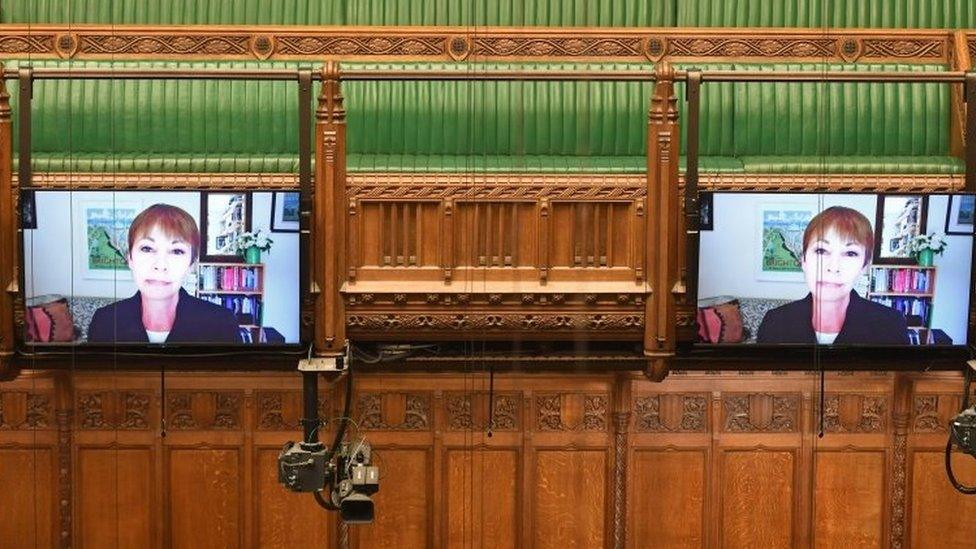
Will Caroline Lucas appear in person or from her home in Brighton?
The Green Party's Caroline Lucas is first through the starting gate, with an amendment to decline a Second Reading to the bill because it contains no provisions for transparency during negotiations or for parliamentary oversight of agreements, and "leaves UK parliamentarians with less influence over trade policy than their counterparts in other states".
Lurking at the end of the agenda is the latest exciting episode of the controversy over who should chair the Commons Liaison Committee, the super-committee of select committee chairs, which is best known for its twice-yearly sessions questioning the prime minister (although Boris Johnson has yet to appear before it).
The government is proposing to install Sir Bernard Jenkin - not now a current committee chair - to chair the Liaison Committee, and this is being resisted by the chairs from opposition parties, who are proposing that the chair must be "a current chair of a Select Committee." Essentially this is about the government not wanting a perceived troublemaker - Jeremy Hunt, Ton Tugendhat - in a prominent position, given the grief the previous chair, Sarah Wollaston, caused them.
The sting in the tail is that a motion to appoint Sir Bernard would be amendable, giving a Commons majority the potential ability to install someone else, and establish that person as a pretty powerful parliamentary player. So keep an eye on the increasingly restive Conservative parliamentary fundamentalists - the Peter Bones and Chris Chopes - who may well see this as an opportunity to remind ministers not to take the Commons for granted, and defy the whip to support an alternative candidate.
The government will probably have the votes to get its way (including, probably, the whipped votes of the Conservative committee chairs, who're less than ecstatic about this proceeding) but in doing so, it will be installing the person who is supposed to go into bat for the select committee system, so Sir Bernard may find his colleagues eager to test his mettle.
The day's committee business includes the Work and Pensions Committee (09:30) on the DWP's response to the coronavirus outbreak, with witnesses from the TUC, the Salvation Army, the Prince's Trust and others.
Transport (09:30) hears from Unite the Union, the British Air Line Pilots Association and minister Kelly Tolhurst on the transport ramifications of the pandemic, and in the afternoon, the Treasury Committee (14:00) takes evidence from top brass at the Bank of England, including governor Andrew Bailey and members of the Monetary Policy Committee, which sets interest rates.
In the Lords (11:00) the day opens with questions on the response of international institutions to Covid-19 in refugee camps, and inheritance tax avoidance. Then detailed Committee stage scrutiny of the Prisoners (Disclosure of Information About Victims) Bill continues - with signs of guerrilla resistance to the measure from senior lawyers. Watch out for Report Stage....
Thursday 21 May
The Commons is not sitting, but several select committees are in action. Environmental Audit (14:00) takes evidence on Covid-19 and the environment and Scottish Affairs (14:30) talks to Dr Gregor Smith, the Interim Chief Medical Officer for Scotland.
In the Lords (11:00) peers question ministers on guidance given to hospitals about ensuring the safety of patients without Covid-19 who require life-saving emergency treatment, government proposals for the rollout of the UK Shared Prosperity Fund and the changes in global oil markets and the implications of those changes for trade, climate change and international security.
Then there are short debates on the contribution made by businesses and the wider private sector in addressing the pandemic, and supporting museums, galleries and historic buildings open to the public, during the pandemic.
Friday 22 May
Neither House is sitting, but the limitations on the number of virtual committees that can be handled on any given day means that a number of select committees are in action.
Home Affairs (09:00) takes evidence on Home Office preparedness for Covid-19, and Public Accounts (13:45) quizzes Sir Chris Wormald, permanent secretary at the Department of Health and Social Care; Sir Simon Stevens, chief executive of NHS England; and other senior officials on capital expenditure in the NHS, based on this National Audit Office report. , external
Meanwhile, the Justice Committee (14:00) talks to the Lord Chief Justice of England and Wales, Lord Burnett of Maldon, about the impact of Covid-19 on the prison, probation and court systems (14:30).
- Published2 April 2020
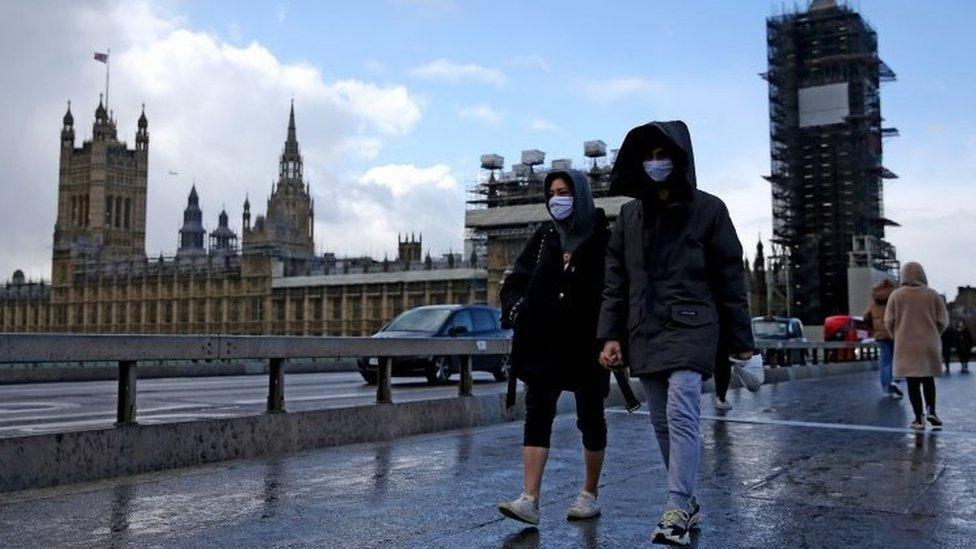
- Published21 April 2020
